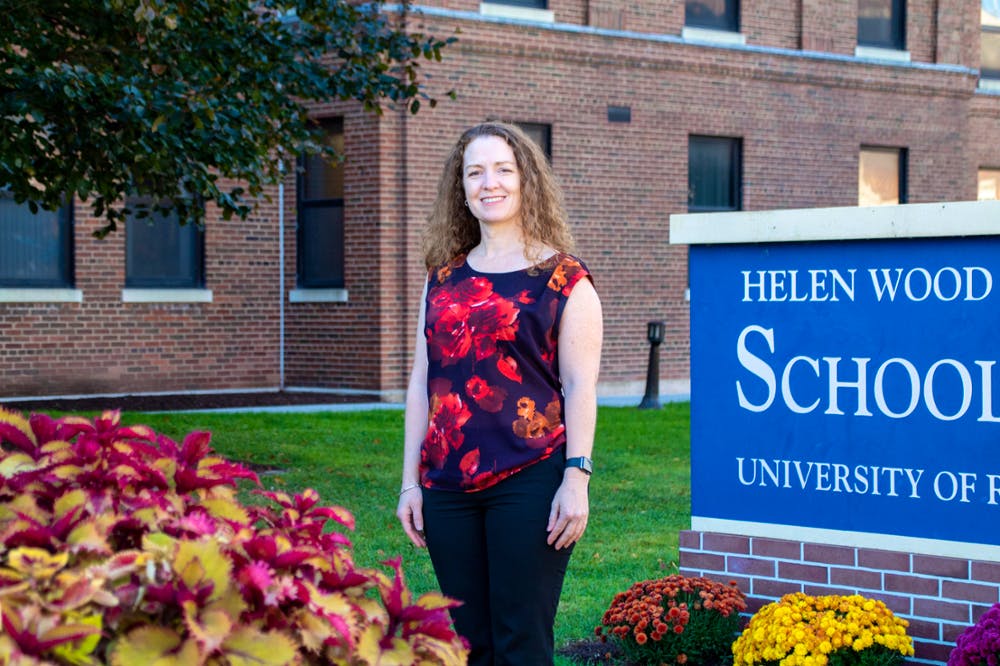Celebrating NP Week 2023: Ann Quinn
By Gianluca D'Elia
Thursday, November 16, 2023

Ann Quinn, MS, FNP-BC, ACHPN has been a nurse for 30 years, with a career that has spanned across pediatric and adult ICUs, oncology, and palliative care.
Inspired by the need for mental health support she noticed while working in palliative care and hospice settings, Quinn recently returned to the University of Rochester School of Nursing for a second master’s in the family psychiatric mental health nurse practitioner specialty, and a Doctor of Nursing Practice (DNP).
“I’m excited not only to develop skills that can affect our health care system in a bigger way, but also to hopefully give back on an academic level and teach future generations of nurse practitioners,” Quinn said.
How did you discover your passion for the specialty areas you’ve worked in?
It's interesting how life works out. Initially I thought I would go into primary care, and I was actually working in the NICU with the babies when I first applied for my master’s. I wanted to broaden my exposure.
A job opened up when I graduated in 2012 for a nurse practitioner in oncology at the University of Rochester Medical Center. That led to my strong interest in palliative care, working with anyone who has a serious illness and helping them with symptom management, and end-of-life care as well. In palliative care, I saw there was such a need for mental health support. There was such a need for professionals to help address depression, anxiety, and a lot of loss and grief. When patients have serious mental illnesses, it’s important to have professionals be able to see them and comment on medication management, and for these people not to be scared of that: this is just part of their history and it should be more normalized, regardless of what services they need in a health care system.
That prompted my interest in working toward my psychiatric mental health nurse practitioner degree. As I learned more about the huge needs for mental health support in our community, I took a special interest in the adolescent and young adult population. I'm primarily concentrating my clinicals with that population now.
It's interesting how you think you're going one way, and then the universe shows up, and you see the needs and feel the calling in different ways. That is one of the greatest joys of my nursing career: that there are so many different areas that you can be exposed to and feel called to serve.
What has it been like to serve as a preceptor for future NPs?
I love teaching, and I always enjoyed having preceptors and mentors in my career. I choose to precept to support the future success of practitioners and our profession. I also believe precepting is a protective measure against burnout and compassion fatigue.
My students inspire and remind me of why our work matters and it’s fulfilling to share stories and experiences of kindness at times of great loss and sadness. Sharing your time and knowledge with future providers is a meaningful and worthwhile endeavor!
How do you see NPs playing a role in advancing health equity?
We have been trained in the holistic view of the patient, families, and anyone who's important in that person's life. And then looking at the systems level, nurse practitioners are very well-suited to be strong advocates and ask, “Is this a symptom management issue? Is this a symptom of the entire system?” We can take a step back and figure out how we can be part of the solution to getting our patients the care that they need. We also get to see the reciprocal effects of that. If you can empower a patient and family to know how to access these resources, that has a ripple effect in their communities.
We're all about promoting health. Regardless of where you are, if you have a serious illness, there's always hope to have stability, and to have the best health that you can, for whatever stage you are in your life.
What has been the most rewarding part of your work?
On a simple level, one of the greatest joys of the work that I do is having the privilege of meeting people where they are and trying to help. It’s important for people to see that they matter and that what is happening to them matters. And then, working with teams, whether it's at the hospital, interdisciplinary, or reaching out into the community, has been incredibly rewarding. We can't do it alone, and nor should we. The more that you can collaborate and invite more people in to work towards a solution, the better. And I always feel like if you're everybody working together, yes, it's this one patient, but it's these lessons learned that we can take forward to future scenarios, future patient populations, to figure it out.
Maya Angelo said, “When you know better, do better.” That summarizes of the biggest joys of my career: trying to always strive for better.
Learn more about UR Nursing's Family Psychiatric Mental Health NP program.
Categories: Nurse Practitioner Programs, Alumni, DNP

